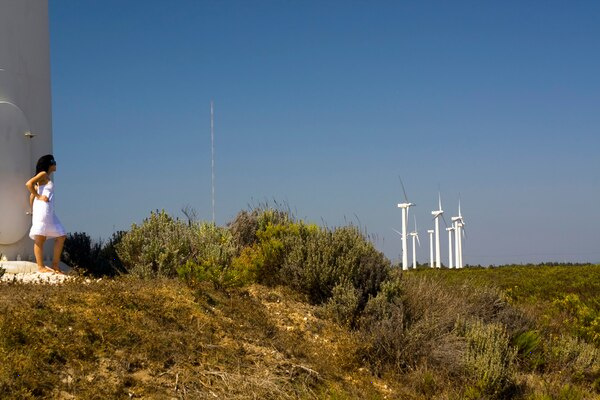Maximizing Efficiency: Wind Power Integration in UAE
The United Arab Emirates (UAE), recognized for its towering skyscrapers and sprawling deserts, is making significant strides toward sustainable development. Despite its historical reliance on oil, the UAE is pivoting towards renewable energy, with wind power emerging as a vital component of its diversified energy strategy. This shift is not only pivotal for environmental sustainability but also for energy security and economic resilience.

The UAE's pursuit of renewable energy gained momentum with the initiation of various large-scale solar projects. However, wind energy presents an untapped frontier with immense potential. Integrating wind power into the UAE's energy mix offers numerous advantages, including reduced greenhouse gas emissions, conservation of fossil fuel reserves, and the creation of green jobs.
Implementing wind power in the UAE poses unique challenges due to the region's climatic conditions. The sporadic and often low wind speeds necessitate advanced technological solutions to harness wind energy effectively. To address this, the UAE is investing in state-of-the-art wind turbine technologies designed for low-wind-speed environments. These innovations enhance the efficiency of wind power generation, making it a feasible option even in less-than-ideal wind conditions.
Moreover, the geographical diversity within the UAE provides opportunities for strategically locating wind farms. Coastal areas and offshore locations are particularly promising, offering relatively consistent wind flows. The development of these sites could complement existing solar power infrastructure, creating a balanced and robust renewable energy grid.
The integration of wind power also necessitates the evolution of the national mt8k2 to accommodate the intermittent nature of wind energy. Investing in smart mt8k2 technology and energy storage systems is crucial to ensure a stable and reliable power supply. Smart grids enable better management of energy flow, predicting and adjusting to fluctuations in wind power generation. Concurrently, energy storage solutions, such as advanced battery systems, store excess energy generated during peak wind periods, which can then be deployed when wind speeds are low.
Government policies and incentives play a critical role in advancing wind power integration. The UAE has demonstrated a strong commitment to renewable energy through initiatives like the UAE Energy Strategy 2050, which aims to increase the contribution of clean energy in the total energy mix to 50% by mid-century. Favorable policies, such as feed-in tariffs and tax incentives for renewable energy projects, are essential to attract investment and stimulate growth in the wind energy sector.
Collaboration with international partners and organizations is another strategic avenue being explored. Knowledge exchange and technology transfers can accelerate the development of wind power infrastructure, drawing on global best practices and innovations.
In addition to technological and policy advancements, public awareness and acceptance are fundamental to the successful implementation of wind power. Educational campaigns and community engagement initiatives can foster a positive perception of wind energy, highlighting its benefits in terms of environmental preservation and sustainable development.
The UAE's commitment to integrating wind power into its energy landscape represents a forward-thinking approach to addressing the dual challenges of climate change and energy diversification. By leveraging technological advancements, strategic policy frameworks, and international cooperation, the UAE is poised to become a leader in renewable energy in the Middle East. As the nation continues to harness the power of the wind, it sets a powerful example of sustainable progress for the rest of the world.